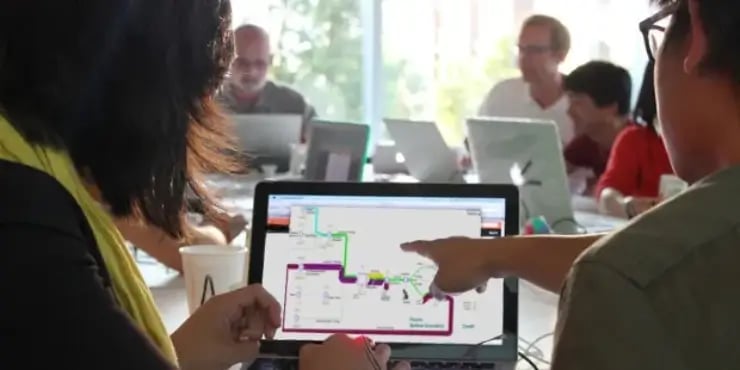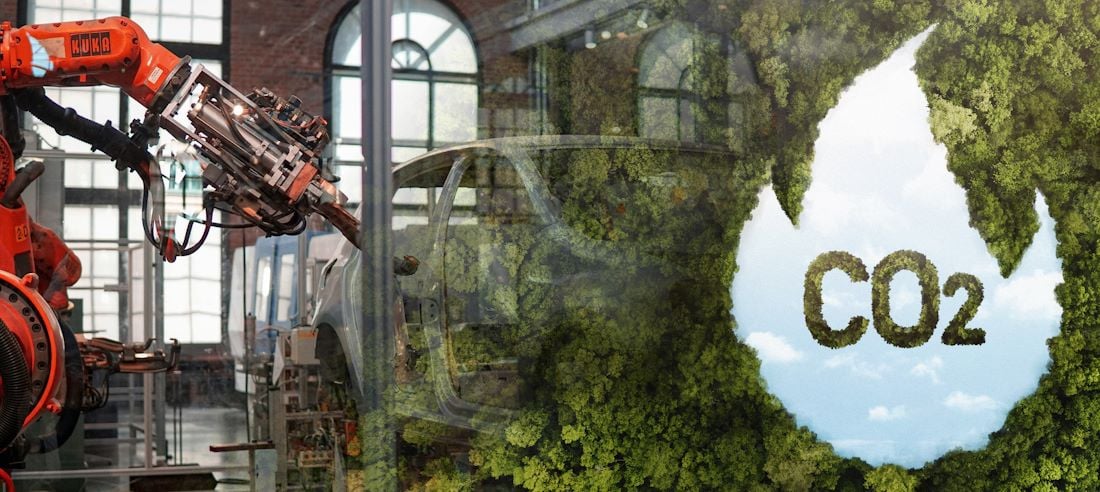Sustainability and efficiency: a couple of terms that couldn’t be more misused and greenwashed. A pernicious conspiracy of PR and CSR departments around the globe has ridden these words down to mere meaninglessness. This is the setting in which a hero emerges from the ashes, a bright star who leaves the grey smog of empty words behind and does some straight talking. The makers and users of umberto, one of the most underestimated software tools in the professional sustainability universe, come together for a user workshop a month from now. In a concentrated time frame of two days (Sept 17+18, 2012), international speakers from business and academia illustrate the power of the software. But wait, what is umberto (apart from the surname of a world famous author)? It’s software for professional use, the cutting edge program for sustainability. What does it do? Through material flow analysis, umberto is capable of calculating a myriad of solutions – the core competencies being process optimization, life cycle assessment and carbon footprinting. However, there are almost as many LCA tools on the market as there are stars in the sky; its versatility is what makes umberto special. The creativity of its users, applying all of umberto’s functionalities in different ways, merits your attention because it puts sense back in our two, suffering terms – efficiency and sustainability. If you get the feeling I am making an overextended claim here, after looking at the user workshop program you will know what I mean.
On Monday, September 17, Dr. Anja Schmidt of Technical University Chemnitz will begin the workshop by holding the first of three presentations on process chains. Evaluation of Process Chains and Material Flow Cost Accounting is her topic. This very first presentation already shows the magic (well, almost magic) twinning of both business and environmental benefits that is generated by umberto. When you know about material flows, you’re able to reduce material use, thus saving materials (good for the environment) and reducing material cost (good for your business). Celian Colon from evea conseil, France, will continue the workshop by showing how to use material flow analysis in the service economy and provide A Case Study of Industrial Storage (also see evea’s knowtheflow-article on EPDs in France). The third process chain presentation will be held by Tim Heinemann of Technical University Braunschweig: A Hierarchical Evaluation Scheme for Industrial Process Chains: Material and Energy Flows in Aluminum Die Casting. Very long title, very simple topic: when you evaluate the processes involved in aluminum die casting, how should you rank them?
Jana Weinberg will open the transportation block at 2:00 PM. She works for Technical University Hamburg-Harburg and has the honor of getting into the details of a delicate technology with claims to saving mankind from global warming while not changing our behavior – the electric car. Life Cycle Assessment of Electric Cars and Electric Hybrids in Comparison to Conventional Vehicles is the title of her presentation. Half an hour later, David Hidalgo of Columbian Pontificia Universidad Javeriana will explain how he measured the carbon footprint of Columbia’s aviation (I don’t want to disappoint you, but let me anticipate: he didn’t measure by flying behind the airplanes with his jetpack, rather he calculated the carbon footprint; David has no jetpack). Back on the ground, Tilmar Ackermann (also TU Braunschweig) will give an introduction at 3:00 PM to his Framework for Evaluating Greenhouse Gas Emissions of Multi-part Logistics Processes with Return Flows in the Automotive Industry.
The third and last block for Monday deals with possibilities to improve decision making using life cycle assessment. Prof. Dr. Hendrik Lambrecht (Hochschule Pforzheim) will start by shedding light on his Visual Approach to Streamlining Uncertainty Analysis in LCAs. Uncertainty is a sensitive issue. While LCAs are able to precisely reveal the most important environmental effects of most products, it all depends on the quality of your input data and knowledge of possible outcomes. If you don’t really know how a new chemical substance will influence an ecological system in the future, how are you going to evaluate its environmental effect? The second topic is more practical. Eva Zschieschang from Karlsruhe Institute of Technology will explain how an LCA can improve the Early Research & Development phase. At 5 PM, ifu Hamburg‘s Maximilian Schüler will showcase the newest developments in the current umberto version.
Tuesday starts with the umberto student award. Let’s see whether last year’s winners, who developed a tool on the range of the electric car, can be topped. The first presentation after the student award will be by Polina Yaseneva from University of Warwick (UK). She will provide insight into her Nanocatalysts for Water Purification work, namely Life Cycle Assessment of Novel Catalytic Technology. After that, ifu Hamburg’s Tobias Viere, whose work was featured in a corresponding article on knowtheflow, will detail his integrated approach towards “Resource Efficiency Analysis for Climate Impact Reduction of Chemical Production Sites”. At 11:30 AM and at noon, two speakers are scheduled to reveal the life cycles of two renewable energy forms: biogas and offshore wind power. The two are Prof. Dr. Jutta Geldermann, University of Göttingen, Germany and Britta Reimers, Technical University Hamburg-Harburg (Germany). Moving on to thermal energy, Björn Becker of WVE GmbH Kaiserslautern (Germany) then continues with his presentation on “Local Heating with Straw Combustion Plants”.
As introduction to the Tuesday afternoon block, Victor Vladimirov (Hobas Engineering GmbH, Austria) will present a link from Carbon Footprinting to LCA in his presentation on “Environmental Indicators”. Carbon footprint and life cycle assessment of products are the subjects of the two following speakers, Christine Schneider (Henkel KgaA, Germany) and Dr. Kathrin Hesse (Fraunhofer IML, Germany), who will focus on the optimization of packaging. Afterwards, Uwe Lübbermann of the remarkable premium-Cola brand (an exclusive, community-run beverage company) will show “How to Utilize Umberto for Reputation and Revenue Building”. Kind of sticking to the beverage industry, but not really, are the next two speakers, who calculated the product carbon footprint of BRITA’s Aluna water filter: Prof. Dr. Klaus Helling and Thomas Keller from the Institute for Applied Material Flow Management at Environmental Campus Birkenfeld. The last speaker, before Martina Prox rounds up the workshop at 5:30 PM, is René Peche from bifa Environmental Institute GmbH. He’ll talk about information technology LCAs: “Successful Application of Umberto in Life Cycle Assessment of Computer Hardware by Fujitsu”.
I think that the colorful mix of different business sectors and various academic research fields is a perfect opportunity to witness the software’s versatility and get inspiration on how to improve process structure and environmental performance for your business by using umberto. Subscriptions to the event and the complete program are available at www.umberto.de/en/workshop. Just note that Ifu hamburg listed the program as preliminary. Don’t blame me if there are minor changes: you have been warned…
Umberto User Workshop
September 17/18, 2012 in Hamburg, Germany
Article image edited by Moritz Bühner, equipping an image by teaguelabs with the sankey diagram of a cat food life cycle found on the umberto demo pages.





